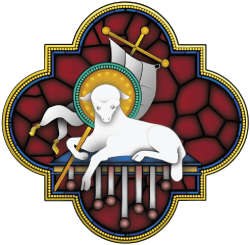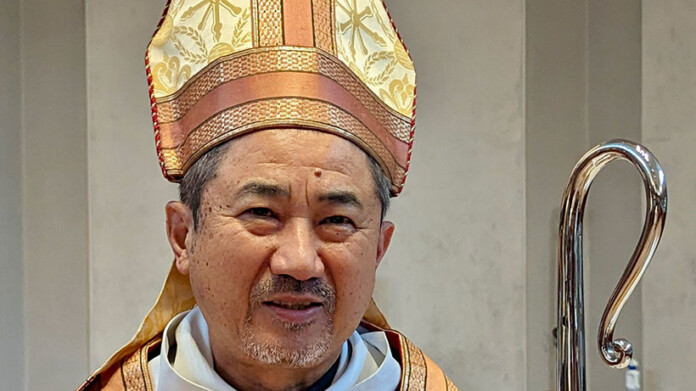The Rt. Rev. David Eisho Uehara, Bishop of Okinawa, was elected primate of the Nippon Sei Ko Kai (NSKK) during its biennial synod, held May 28-30 in Tokyo. Uehara succeeds the Rt. Rev. Luke Kenichi Muto, Bishop of Kyushu, who has served as primate since November 2020.
Uehara has served as Bishop of Okinawa, Japan’s smallest and least populated island, since 2013. Before his consecration, Uehara was rector of Okinawa’s cathedral and rector of a parish in the city.
The synod also reviewed progress toward unification by four of its eleven dioceses: Tokyo, Kita-Kanto, Tohoku, and Hokkaido. The NSKK has just 32,000 members, and has seen declines in membership for decades.
The synod also celebrated 40 years of collaboration in mission with the Anglican Church of Korea, and gave thanks for the ministry of the Sisters of the Nazarene, a religious order that recently voted to disband. It also reviewed responses to its proposed revisions to its Book of Common Prayer, slated for completion in 2028.
Anglican mission work in Japan was a joint effort of the Church of England’s Church Mission Society and the Episcopal Church, with missionaries being dispatched to the country shortly after it was opened to the West by American commodore Matthew Perry’s famous 1853 expedition to Tokyo.
The Rt. Rev. Channing Moore Williams, a Virginian, was consecrated as Japan’s first Anglican bishop in 1866, the same year he baptized his first native convert, a samurai named Shōmura Sukeuemon.
The Nippon Seo Ko Kai (the Holy Catholic Church of Japan) was formed in 1887, when disparate Anglican mission congregations were united into one autonomous church. The church’s first Japanese bishops were consecrated in 1923. Since the 1930s, when most Western missionaries were forced to withdraw from the country, the church has been led mostly by indigenous Japanese clergy, who are prepared for ministry at the church’s two seminaries.
The NSKK affirms traditional teaching about marriage and human sexuality, but has not been active in Anglican realignment.



